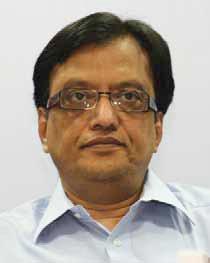
 The AICTE has created the Indian Board of Accreditation to accredit and develop quality metrics in a wide variety of courses, says Prof (Dr) SS Mantha, Chairman, All Indian Council for Technical Education
The AICTE has created the Indian Board of Accreditation to accredit and develop quality metrics in a wide variety of courses, says Prof (Dr) SS Mantha, Chairman, All Indian Council for Technical Education
Please tell us about the initiatives that the AICTE is taking towards making accreditation compulsory for colleges.
Accreditation is not mandatory at this point of time. However, it is a good idea to make it mandatory in the future. The AICTE will be exploring ways to do this as it helps in ensuring certification of a certain benchmark on standards. All the countries should work at meeting the global standards of education in order to improve the mobility of engineers.
How will it improve the education system?
Unlike the earlier practice of quality as a measure of inputs that are required to run an institute, the new accreditation process seeks to measure outcomes. Across the world, outcomes are measured to ensure quality. Education has to be student-centric and hence, the value addition that a student gets through education needs to be measured.
The Washington Accord, too, emphasises the need to measure outcomes as it helps in measuring what a student learns in a given learning environment and ensures his progress in terms of academic excellence and also a consequent appropriate employment.
The massive growth in the technical education system in India has spawned the need for quality. Thus, getting courses accredited is also gaining importance. This surging demand has necessitated for the AICTE to create another body, the Indian Board of Accreditation (IBA), which will also accredit courses in various programmes such as engineering/technology, architecture, pharmacy, applied arts, management, MCA and hotel management. This gives the users the access to an alternate system which is completely online, equally robust, sound and avoids delays. The board will follow similar outcome practices as the National Board of Accreditation (NBA) does, and will provide utmost transparency and accountability.
The AICTE is also pioneering the growth in vocational education in the country and it is only natural that the accreditation of vocational education and hands on skills acquired under the National Vocational Education Qualifications Framework (NVEQF) would assume importance in the near future. The IBA would be positioned to ensure that quality prevails in this area too.
At AICTE, we are also in the process of launching calibrated services in distance education. The IBA will also look at developing quality metrics at par with the world standards and like those in higher education, in the distance education system too.
How are private colleges reacting to the move?
All the institutes are reacting positively about the initiatives that the AICTE has been taking, since all of us are targeting the growth of quality technical and higher education in the country. The private sector has always been proactive and supportive in the process of implementing reforms.
How are you helping colleges in getting accredited?
We conduct awareness workshops for all the stakeholders so that the new procedures are understood and implemented properly. Doing a self-assessment will be of great help to the institutes because they will be able to see how they fare, and do a course correction accordingly. We will conduct workshops for experts and for the institutes too, in the future.
In your opinion, why could the National Accreditation Regulatory Authority Bill not be passed in the Parliament?
It is incorrect to say that there are difficulties in passing the bill. Various nuances and provisions of the bill need to be understood, and we believe that everyone will support the efforts to improve the quality of technical education in the country






















